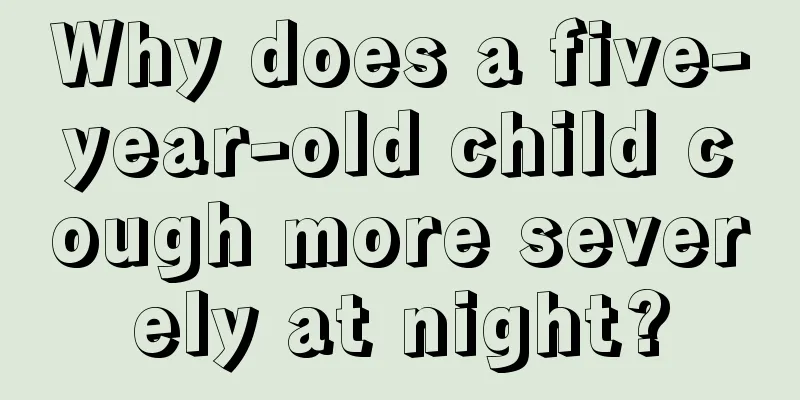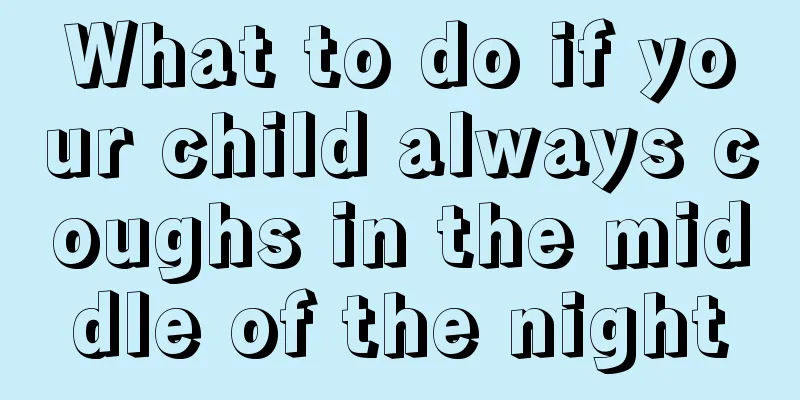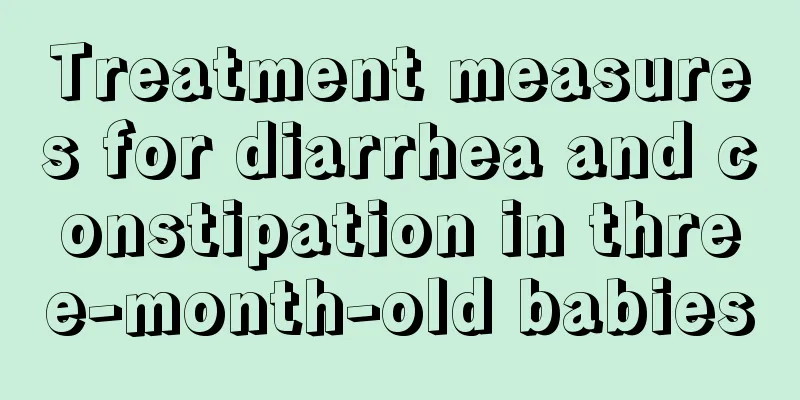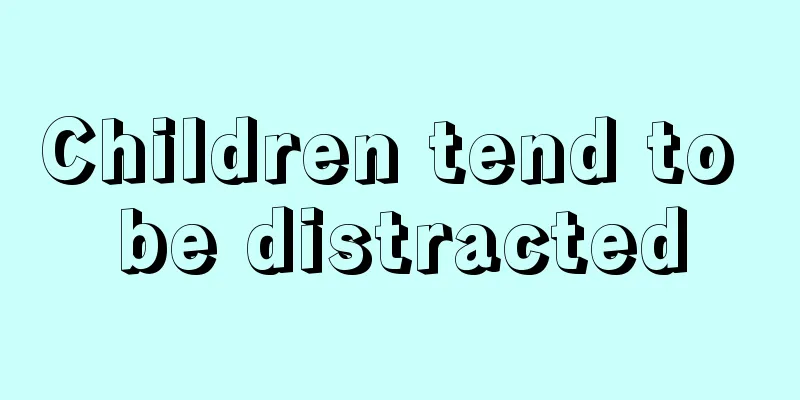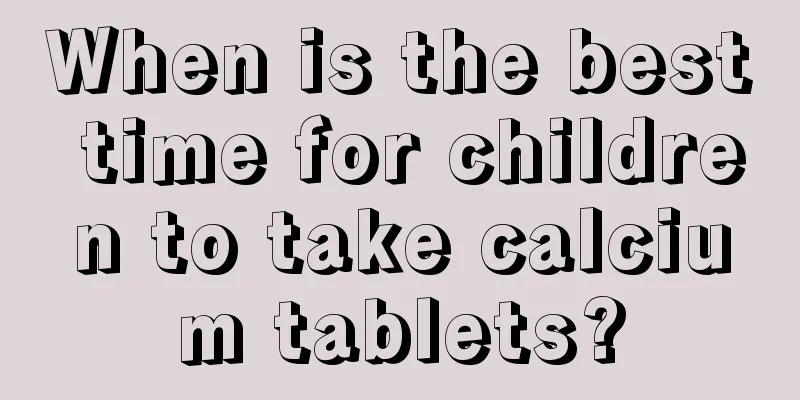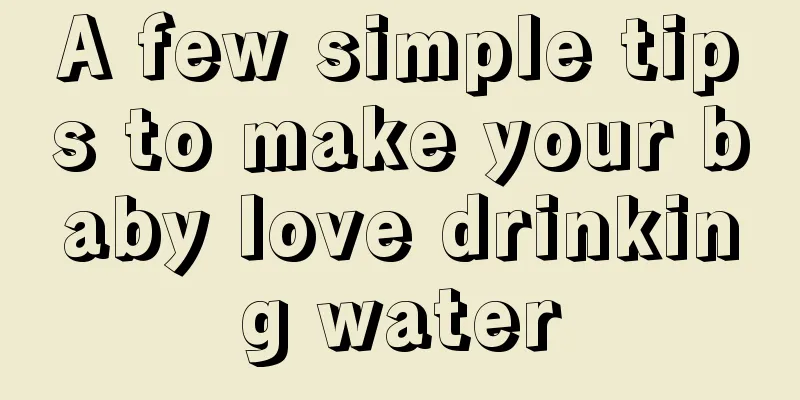Pain of baby's first teeth
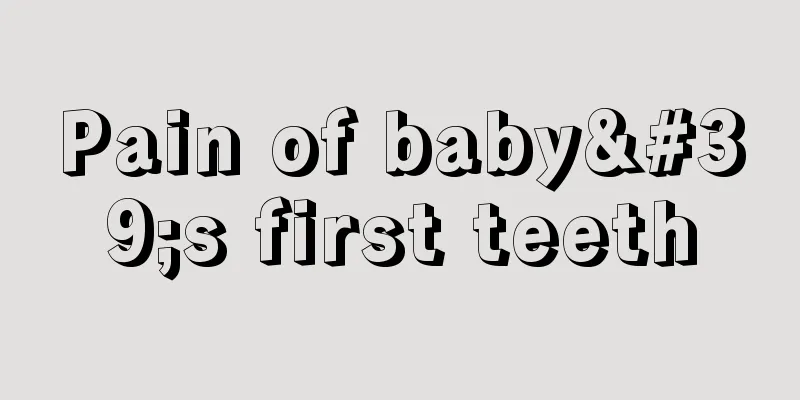
|
When the baby grows its first tooth, many parents are very happy. Many babies do not experience any discomfort when teething, but some babies feel very painful when teething. Fever and pain can cause children to cry constantly. So, how can parents judge whether their children are teething based on their reactions? In fact, there is a skill to this. ① Biting things When the deciduous teeth erupt, children like to bite things, such as biting the nipple while breastfeeding or putting fingers in the mouth. At this time, you can give your baby a toy that can be bitten to stimulate the gums so that the teeth can penetrate the gums and erupt smoothly. ② Drooling: When teeth erupt, the trigeminal nerve is stimulated, causing increased saliva secretion. Since children do not have the habit of swallowing large amounts of saliva and their oral cavity is shallow, saliva often flows out of the mouth, forming the so-called "physiological drooling." This phenomenon usually disappears naturally with age. ③ Fever and diarrhea. A few babies will experience abnormal symptoms such as fever and diarrhea when they are teething. Parents should take their babies to the hospital for examination and prescribe the right medicine. ④ The baby's teeth are itchy. Because of the stimulation to the gingival nerves caused by the eruption of teeth, the baby's gums will feel some discomfort, such as itchy gums, gum pain, etc. Some babies even like to put things in their mouths and bite them. To prevent babies from grabbing and biting unhygienic and unsafe objects, mothers should buy safe teething tools for their babies. ⑤ When a baby shows symptoms such as crying, irritability, etc. before teething, you can usually calm him down by letting him bite a teething stick to divert his attention. 1. Teething is generally painless, but some babies may feel uncomfortable and irritable. You can put a clean finger or moistened gauze in your child's mouth and rub the gums, which may help him; a cool teething ring can also be used to relieve gum discomfort during teething. 2. Be careful when using teethers. Excessive use of teethers is not good for children. 3. Teething does not cause fever. If your child has a fever, you should take him to see a doctor as there may be another cause. 4. Breastfeeding is beneficial to the baby's tooth development. 5. Your baby can use a cup when he is 6 months old, but stop giving him a bottle when he is 1 year old. These are good for his tooth development. 6. Just add some water or regular milk between meals. Don't let your children drink fruit juice or other beverages because they contain a lot of sugar. If you want to give your baby juice or sweetened milk, you can give it directly to your child during meals. 7. When your baby's first tooth comes out, you should brush his teeth twice a day. The most important time is before bed at night. Use a soft baby toothbrush, apply a small amount of toothpaste, and gently brush his teeth. Be careful not to let children swallow toothpaste. |
<<: Tooth pigmentation in children
>>: What to do if a three-year-old baby has a cold and stuffy nose
Recommend
How old is the baby at the latest to talk?
When babies are just born, they cannot express th...
What causes bedwetting at 15?
Bedwetting is actually a manifestation of a slow ...
What can’t babies eat when they have internal heat? This knowledge must be remembered
Children are very prone to symptoms of getting an...
How should we train children’s memory?
A baby's memory is not entirely innate. In or...
What causes chapped lips in children?
The wind is strong in autumn and the weather is d...
Baby sweats a lot on his head while sleeping
When babies are young, parents always watch over ...
What is the stool of an eight-month-old baby?
We all know that the baby's gastrointestinal ...
Why does a child have a fever when he catches a cold?
Why does a child have a fever when he catches a c...
How to clean baby eczema with honeysuckle
I believe everyone must be very familiar with the...
What causes fever and joint pain in children?
Since children have relatively low immunity in th...
What are the symptoms of severe calcium deficiency in infants?
When an infant shows severe calcium deficiency, p...
Six things not to do in children's diet for pneumonia
1. Do not eat acidic foods Acidic foods are not c...
What should we pay attention to regarding baby’s digestion and absorption?
The problem of baby eating has always been a conc...
What calcium tablets are good for children with leg pain?
Parents need to pay attention to children's l...
What to do if your baby falls to the ground
For new parents, there are many things to learn, ...
